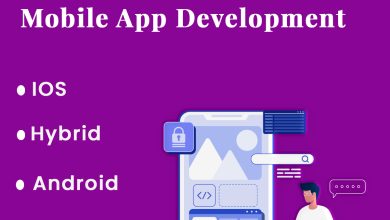Cross-Platform Mobile App Development: Complete Guide

Cross-Platform App Development: Complete Guide
The ever-increasing penetration of the smartphone industry is forcing businesses to adopt mobile apps as a convenient channel to reach their customers. In this article, we have discussed the Cross-Platform App Development guide for all apps.
Modern technology has changed how people interact with the world around them. The millennials today would have a hard time imagining a world without smartphones. All the app stores in the market today have created a robust economy where all the services or products required by a customer are available at the tip of their fingers. From ordering food, taking a cab, doing the laundry, to even finding a job- there is an app that serves everything out there. Read ahead to learn more.

Why do we Need Cross-Platform Apps?
A cross-platform app is very different from native apps. While native apps allow app owners to utilize the intrinsic features of the OS for which they work, cross-platform apps work well for all devices. This reduces the cost and time required for research and utilization of all the specified features of any particular OS. Added to this, a cross-platform app works on all devices with no hassle- increasing the overall reach and market value.
Now, it might be tricky for you to come up with tacky features that work equally well on all platforms, but it becomes easy when you understand the process of cross-platform mobile app development.
With that said, let us know some of the reasons why it might or might be a great fit for your business.
Pros and Cons of Cross-Platform App Development
Pros:
- Reduced cost
- Scope of quick app development
- Smarter plugins
- Undemanding maintenance
- Fewer and bare minimum efforts
- Easier integration
- Reliable cross-platform framework for all devices, and many more.
Cons:
- Restrictive tools
- Lag in performance
- Delay in adding new features
- Update in the app framework might not support all the features
- Inefficient code at times
Languages Used
Although just one code works on all the platforms, we can use various programming languages that support cross-platform app development. However, the following are the most commonly used ones among all:
Java
It is a class-based, concurrent, and object-oriented language that works for core Android. It is specially designed for fewer implementation dependencies.
HTML5 and JavaScript
It is a high-level language used for developing such mobile apps that are compatible with desktops as well. When clubbed together, JavaScript and HTML5 work very well for cross-platform apps.
C#
The C# language is a multi-paradigm language that is quite equivalent to Objective-C. It is declarative, imperative, functional, component-oriented, object-oriented, and generic. Thus, the C# programming language has become a very popular choice for various developers.
Tools In Cross-Platform App Development
The tech domain is expanding day by day, and a lot of tools now allow app development. Each of these tools has their own characteristics but offer varied functions. Here are a few tools that might come in handy:
React Native
React Native is one of the most popular frameworks, as of today for iOS and Android mobile app development. It offers much faster deployment time and helps create high-performance apps in shorter development cycles. It also supports JSX and offers a very smooth animation.
Advantages:
- Efficient and faster development;
- Highly reusable;
- Uses JS for programming. Thus, very powerful.
Cross-platform apps developed with React Native:
- Bloomberg
- Tesla
- Skype
Ionic
It is an open-source platform, supports various UI feature elements like forms, action sheets, filters, tab bars, list views, and navigation menu. Thus, it’s great for UI development. It supports all the latest iOS and Android versions.
Advantages:
- It has no complex installation and is easy to adopt;
- Built on AngularJS, thus offers many features;
- It marks a high benchmark for performance;
- The technology is sophisticated, yet affordable. The Ionic frameworks are pretty low cost;
- Cordova plugins enable Ionic to access various inbuilt features from devices, like GPS, cameras, and flashlights.
Cross-platform apps developed with Ionic:
- IBM
- SAP
- ING
- NASA
Flutter
Maintained by Google, Flutter is also an open-source framework. It comes with a feature of hot reloading, that lets developers see changes in a code instantly, rather than waiting for minutes. As a matter of fact, is an ideal framework for MVP development.
Flutter is very easy to use and learn for newbies since it is based on Dart. But note that it doesn’t support Android TV and Apple TV. Thus, it may lack some functionalities.
Cross-platform apps developed with Flutter:
- Tencent
- Alibaba
- Google Ads
Xamarin
It is a Microsoft-owned framework. The apps that we build using Xamrin not only appear the way they should, they also behave as expected. It can also break down various cross-platform operations such as the creation of iOS dynamic layouts.
Advantages:
- Integrates easily with Visual Studio as well as Visual Studio community without any extra cost;
- Offers easier code compilation and API integration;
- Helps programmers to develop productive and high-performing code that can easily access any native API of devices;
- Supports a shared CodeBase;
- Programmers can avail support from third parties and official support forums. Thus, easy to learn.
Cross-platform apps developed with Xamarin:
- Alaska Airlines
- Fox Sports
- HCL
- BBC Good Food
- American Cancer Society
Cost to Build a Cross-Platform App
The cost to make a cross-platform app varies on the basis of what features you want and the time that goes into developing them. For starters, an app would require a backend part (visible to developers), a frontend part (visible to consumers), and a robust UI. The complexity and design of the UI then decide the appearance of the app. After all this, the app owner would require a panel to control all of these modules.
Added to this, you would like to integrate the app with third parties like GPS, Google Maps, etc., for better services. Long story short- the complexity and time took in development decide the cost make a cross-platform app. But an average app would cost you around 40,000 to 200,000 USD only for development.
Wrapping It Up
Want to know a secret?
The idea of developing a cross-platform mobile app might sound a bit too complicated, but only 30% of marketers have an upper hand over it. It is, certainly tricky to breathe life into your ideas for a perfect app, but it is not impossible!
New to app development? JumpGrowth is here to help you in every step! We offer prebuilt apps and other app development solutions to all of our clients so that we help you excel in the market! Looking forward to building your next (or first) cross-platform app? Get in touch with us.




